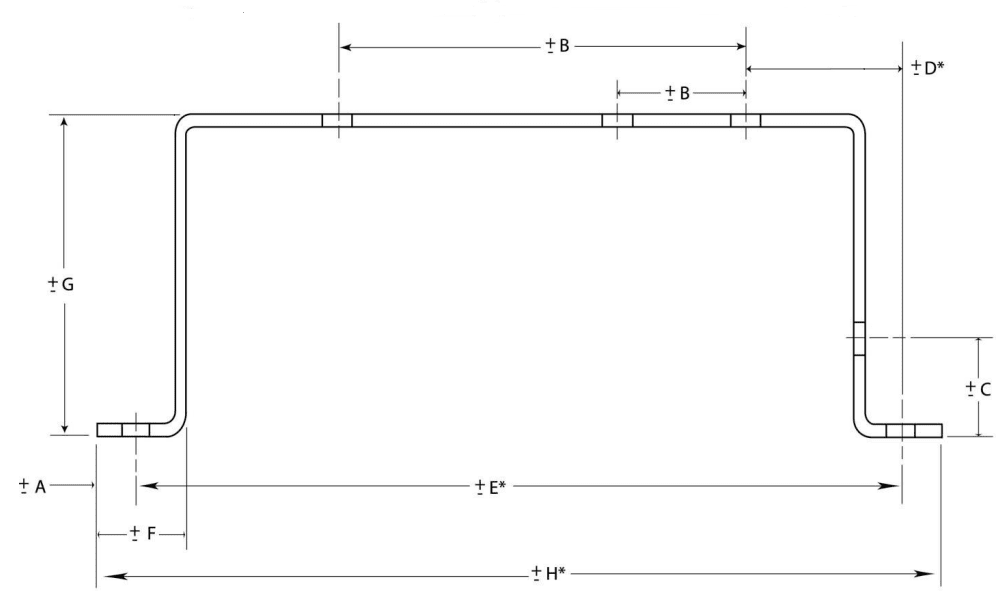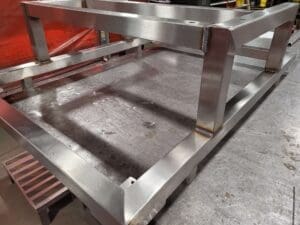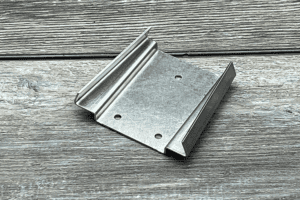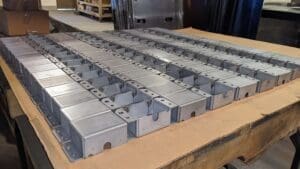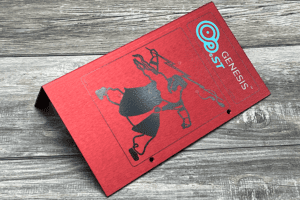Last updated on January 5th, 2026 at 11:59 am
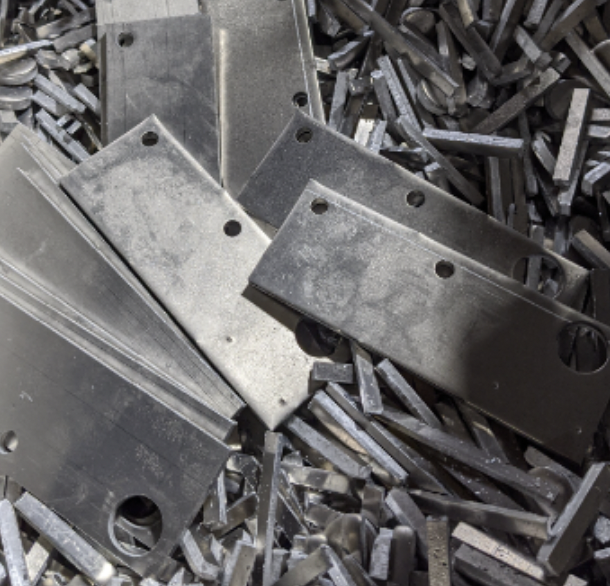
Aluminum: the most popular construction metal after steel. This alloy has been used for metal fabrication for centuries, so it’s not surprising that there are so many aluminum grades to choose from.
Do you need 5052?
How about 6061?
Or maybe 7075?
Not quite sure? We’ve got you covered.
Table of Contents
Which Aluminum Grades Are Best for Sheet Metal Fabrication?
While many aluminum grades exist, not all are well-suited for sheet metal fabrication. In practice, sheet metal parts require alloys that balance formability, weldability, and corrosion resistance. For this reason, 5052 and 6061 are the most commonly used aluminum grades for sheet metal parts, while 7075 is typically reserved for machined or structural components where forming is minimal.
What Exactly Are Aluminum Grades?
Aluminum grades are metrics that aim to differentiate the specific alloy compositions, hardening processes, and heat treatability of unique types of aluminum.
Since not all aluminum grades have the same properties, the most important question when choosing an alloy is: How do you want to use your aluminum sheet metal?
Here are some factors to keep in mind:
- Strength. Do you need a high strength-to-weight ratio?
- Formability. Will you be shaping or bending?
- Machining. Will cutting, stripping, and the like be crucial to your process?
- Weldability. Does it need to be weldable?
- Rust Resistance. Is it important that the part does not corrode?
- Heat Treatability. Will you be applying heat in your design process?
- Availability. Lead time and cost may be shorter and lower if you choose a common alloy shops are likely to have in stock.
Approved Sheet Metal 6061-T6 vs 5052-H32
5052, 6061, 7075 Grade Aluminum Sheet Metal for Fabrication
| 5052 Aluminum Alloy | 6061 Aluminum Alloy | 7075 Aluminum Alloy |
|---|---|---|
| Strength: Good. The 5052 aluminum is one of the strongest alloys-in the non-heatable category. It's strength makes it a favorite for sheet metal or plate applications. | Strength: Excellent. Stronger than 5052. | Strength: Excellent. 1.5 times stronger than the 6061. High strength-to-weight ratio. |
| Formability: Excellent. | Formability: Excellent. | Formability: Low. High strength limits tight bends and complex formed features. |
| Machining: Fair to poor. Softer material can gum up tooling. | Machining: Good. Though relatively softer than other alloys, the 6061 is harder than the 5052, which makes it easier to machine. | Machining: Excellent. |
| Weldability: Excellent. | Weldability: Excellent. | Weldability: Low. The metal tends to crack after welding. |
| Rust Resistance: Excellent. 5052 does not contain any copper, which makes it resistant to saltwater, too. | Rust Resistance: Good. The 5052 is better at resisting saltwater. | Rust Resistance: Excellent. Also resistant to saltwater. |
| Heat Treatability: Low. 5052 is not heat-treatable. Instead, cold-working methods (ex. cold forging) are used to strengthen it. | Heat Treatability: Excellent. | Heat Treatability: Excellent. |
| Use: The 5052 alloy is usually used for marine applications, medical devices, and even kitchenware. | Use: The most popular and cost-efficient aluminum alloy, the 6061 is used for many parts: from your typical bike to electrical equipment, to beverage cans. | Use: Its high strength-to-weight ratio makes the 7075 perfect for the aerospace, marine, military, and automobile industries. It is also one of the pricier alloys. |
Why Aluminum Temper Matters as Much as the Grade
When comparing aluminum grades, it’s important to consider temper, not just alloy. For example, 5052-H32 and 6061-T6 behave very differently during forming, even though both are common sheet metal materials. Temper describes how the material was processed (strain-hardened or heat-treated), which directly affects bend radius, cracking risk, and final part strength. This is why specifying both the grade and temper on your drawing is critical for predictable results.
Aluminum alloys are categorized into series based on their primary alloying elements, each offering distinct properties suited to various applications. Here's an overview of common aluminum grades and their typical uses, keeping in mind that not all of these are ideal for the sheet metal fabrication process.:
1. 1000 Series (Pure Aluminum):
- Grade 1100: Known for its excellent corrosion resistance and high thermal and electrical conductivity. It's commonly used in chemical and food processing industries, as well as for heat exchangers and cooking utensils. Rarely used for structural sheet metal parts.
2. 2000 Series (Aluminum-Copper Alloys):
- Grade 2024: Offers high strength and excellent fatigue resistance, making it ideal for aerospace applications, including aircraft structures and military vehicles. Generally poor weldability; uncommon for formed sheet metal.
3. 3000 Series (Aluminum-Manganese Alloys):
- Grade 3003: Provides good strength and excellent corrosion resistance, suitable for roofing, siding, and cooking utensils.
4. 4000 Series (Aluminum-Silicon Alloys):
- Grade 4045: Commonly used in automotive applications, particularly for heat exchangers and radiators.
5. 5000 Series (Aluminum-Magnesium Alloys): Excellent for sheet metal fabrication
- Grade 5052: Known for exceptional corrosion resistance, especially in marine environments. It's used in boat hulls, storage tanks, and pressure vessels. IDEAL FOR SHEET METAL FABRICATION
- Grade 5083: Offers excellent performance in extreme environments, including shipbuilding and offshore applications.
6. 6000 Series (Aluminum-Magnesium-Silicon Alloys):
- Grade 6061: A versatile alloy with good mechanical properties and weldability, used in structural applications, pipelines, and recreational equipment.
- Grade 6063: Known for its good surface finish and is commonly used in architectural applications, including window frames and door frames.
7. 7000 Series (Aluminum-Zinc Alloys): High strength, limited formability
- Grade 7075: Offers high strength and is used in aerospace and military applications, including aircraft wings and fuselages.
Material Selection Tips:
When selecting an aluminum grade for your project, consider the following factors, keeping in mind that not all of these are ideal for the sheet metal fabrication process.
- Strength Requirements: Determine the necessary strength-to-weight ratio for your application. For high-strength needs, alloys like 7075 are suitable, while 6061 offers a balance between strength and workability.
- Corrosion Resistance: If the application involves exposure to harsh environments, such as marine or chemical settings, alloys like 5052 or 5083 provide excellent corrosion resistance.
- Formability and Weldability: For applications requiring extensive forming or welding, alloys like 3003 and 6061 are preferred due to their good formability and weldability.
- Heat Treatability: If the material will undergo heat treatment to enhance strength, consider alloys like 2024 or 7075, which respond well to heat treatment processes.
- Cost and Availability: Common alloys like 6061 are widely available and cost-effective, making them suitable for general-purpose applications.
By carefully evaluating these factors, you can select the most appropriate aluminum grade to meet the specific requirements of your project.
At Approved Sheet Metal, we always have 5052, 6061, and 7075 on our rack and ready for your next part. If you need more help figuring out which grade is suitable for your sheet metal prototype, we’d be more than happy to help.
P.S. What else is on our rack? Get a complete list of our materials here.

